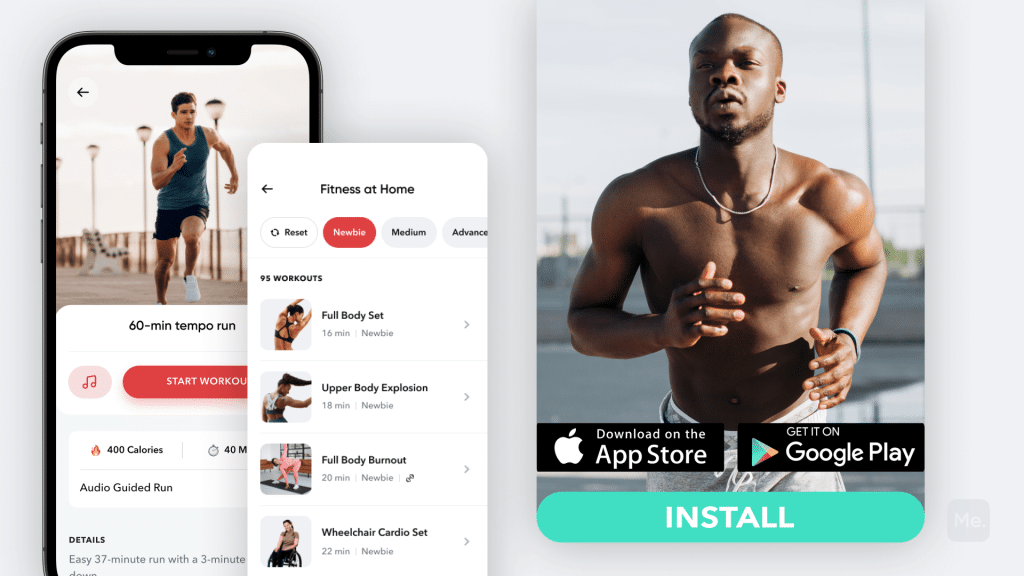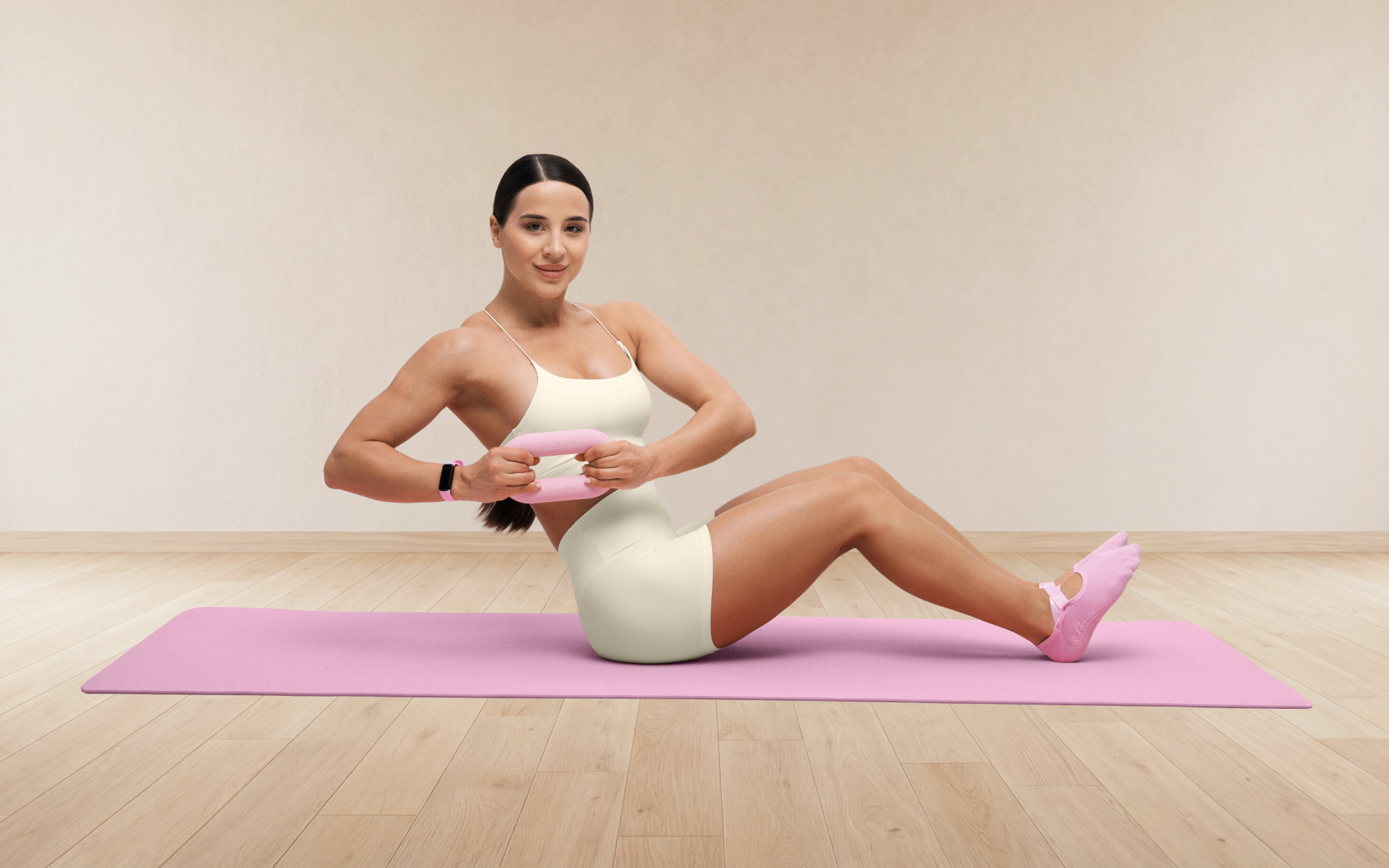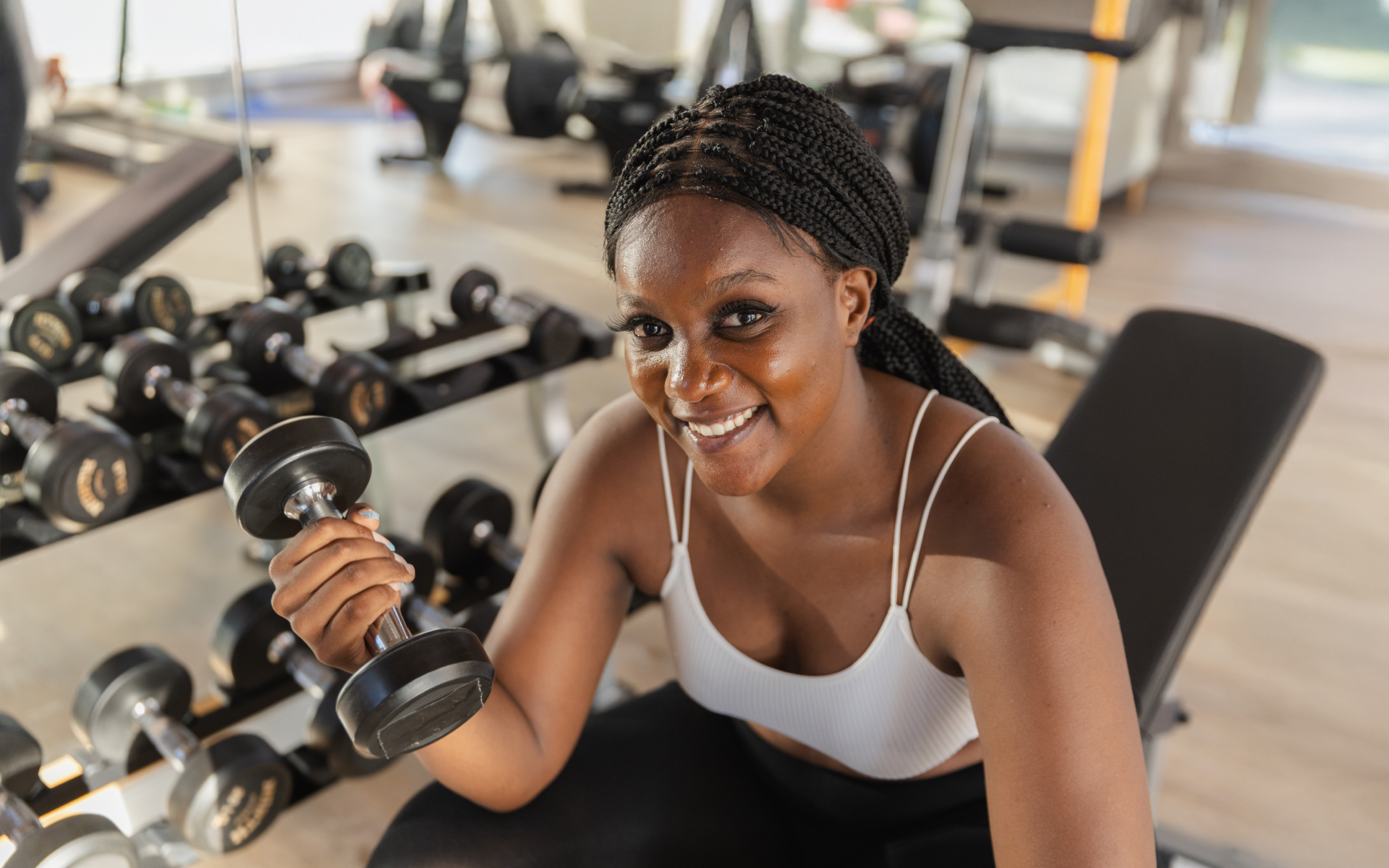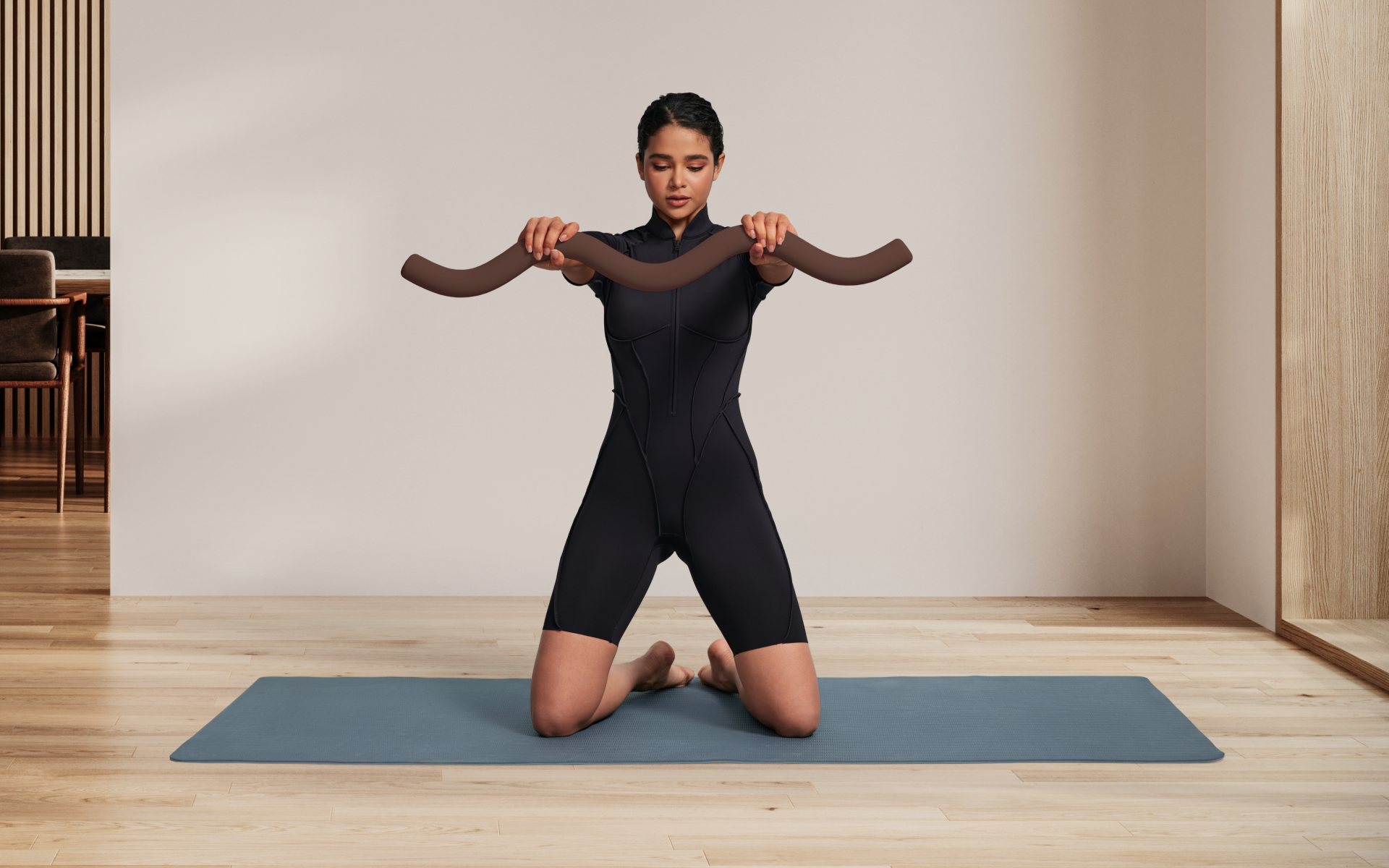You’ve probably heard of the marathon, which is 26.2 miles or 42.2 kilometers long. You may have even run one before. But what about an ultramarathon? An ultramarathon is greater than that of a standard marathon but less than 100 miles (160 kilometers).
Get your personalized
meal plan!
Some runners find it difficult to train for and complete an ultramarathon due to the rigorous physical demands required by this type of event. This article will provide you with tips on how to train for an ultramarathon so you can build endurance and successfully complete your first 50-mile race.
The Basics Of A Training Plan For An Ultramarathon
Training for a long race such as an ultramarathon is different from training for a shorter race. The training plan needs to be tailored to the individual and should gradually increase the distance of your long runs.
There are a few key components of such a training plan:
Warm-Up/Cool-Down
These are important for injury prevention and should be included in every workout (4). A warm-up should last about 10 minutes and include light cardio and stretching. The cool-down should last about 5-10 minutes and include a few static stretches.
Easy/Recovery Runs
These runs help you to increase your distance gradually and aid in recovery. Easy runs should be at a comfortable pace such that you can hold a conversation while running.
Long Runs
The main focus of your training should be on long runs. The distance of these runs should gradually increase as the race gets closer. In the weeks leading up to an ultramarathon, long runs should be at least half of the race distance.
Tempo Runs
These runs help you to train your body to run at a faster pace for a longer period of time (1). Tempo runs should be done at the pace you plan to run the race and last for 20-30 minutes.
BetterMe app is a foolproof way to go from zero to a weight loss hero in a safe and sustainable way! What are you waiting for? Start transforming your body now!
Strength & Conditioning Exercises
Strength and conditioning exercises are important for building strength, preventing injury, and helping you be mentally tough (7). Runners should include two days of strength training per week during their ultramarathon training plan.
Bodyweight exercises such as pushups, sit-ups, and lunges are great ways to add strength training to your workout without having to go to a gym.
Specific Conditions
You’ll have to train in the specific environmental and weather conditions you expect in the race. For example, if the race is in hot weather you will need to spend more time running in hot weather and vice versa.
The 50 Mile Ultramarathon Training Plan
Here is a sample 4 week beginner ultramarathon training plan that includes all the basics we’ve discussed above. On each day, you start with a warm-up and end with a cool down.
Note that it will take much longer than 4 weeks to train for an ultramarathon. However, this sample schedule can inspire you to create a longer, more individualized schedule that works for you.
Week 1
- Monday: Rest
- Tuesday: 35 mins easy run
- Wednesday: 6 miles easy run
- Thursday: Strength and conditioning
- Friday: 60 mins easy
- Saturday: Rest
- Sunday: 8 miles long run
Week 2
- Monday: Rest
- Tuesday: 35 mins easy run
- Wednesday: 20 mins fast run, 15 mins easy run
- Thursday: 1 mile easy, 6 miles long run, 1 mile easy
- Friday: Strength and conditioning
- Saturday: Rest
- Sunday: 10 miles long run
Week 3
- Monday: Rest
- Tuesday: 35 mins easy, 6 miles long run
- Wednesday: 20 mins fast run, 15 mins easy run
- Thursday: 1 mile easy, 8 miles long run, 1 mile easy
- Friday: Strength and conditioning
- Saturday: Rest
- Sunday: 12 miles long run
Read More: Marathon Training Plan 16 Weeks for Beginner and Intermediate Runners
Week 4
- Monday: Rest
- Tuesday: 35 mins easy run
- Wednesday: 20 mins fast run, 15 mins easy run
- Thursday: 1 mile easy, 4 miles long run, 1 mile easy
- Friday: Strength and conditioning
- Saturday: Rest
- Sunday: Rest
Which Ultramarathon Training Gear Do You Need?
Many of us love the simplicity and inexpensive nature of running, but training for and running an ultra will require more gear than a standard marathon.
Shoes
Your shoes are one of the most important pieces of gear you’ll need for an ultramarathon. You’ll want to choose shoes that are light and have good cushioning. It’s also important to find shoes that fit well and won’t cause blisters.
Socks
Socks are another key piece of gear for running an ultramarathon. You’ll want to choose a sock that is cushioned, wicks away moisture, and prevents blisters.
Clothing
You’ll want to wear clothing that is lightweight and breathable. It’s also important to choose clothes that will protect you from the elements. For example, if the race is in cold weather you’ll need to wear clothing that will keep you warm.
Hydration Gear
You’ll need to drink a lot of water and electrolytes during an ultramarathon, so it’s important to have a good hydration system in place (3). There are many different types of hydration systems available, so you’ll need to decide what works best for your body type and race plan.
Fitness Tracker/Watch
When you’re training for an ultramarathon, your plan is likely to change. You’ll want to have a fitness tracker or watch that will help you record different variables such as pace and mileage so that you can adjust accordingly.
How To Train For An Ultramarathon
Training for an ultramarathon takes time, but if you follow these ultramarathon training tips, you’ll be better prepared for the challenges of running 50 miles or more!
Set A Clear And Realistic Goal
Goal setting has been proven to be one of the most effective ways to achieve success. This is especially true for ultramarathon training and racing. Without a clearly defined goal, it’s easy to lose motivation and give up on your plan.
How do you know if you’ve set a realistic goal? Here are some questions to ask yourself:
- How many marathons have I run before?
- Can I run that distance comfortably?
- What is my time goal for the race?
- What type of terrain will the race be on?
- How much time do I have to train?
Take Your Time
Training for an ultramarathon is not a quick process. It takes time and dedication to build the endurance you need to run 50 miles or more. Don’t rush your training and try to take on too much too soon.
Spread it Out
One of the most common mistakes that runners make when they’re training for an ultramarathon is overloading their bodies with miles. If you run too many miles at one time, you’ll increase your chances of getting injured (5).
Master Proper Form Before You Increase Your Mileage
It’s important to build mileage gradually and master the proper running techniques before you increase your weekly miles. The more time you spend building a foundation, the less likely you are to get injured when you’re training for an ultramarathon (5).
Take Rest Days
Taking a day off here and there is good for your body and will help you avoid injuries. Make sure to schedule your rest days into your training plan!
Incorporate Strength And Conditioning
Strength and conditioning can be an important part of ultramarathon training. When you’re running long distances, you’ll need all the strength you can get (7)!
Get A Good Night’s Sleep
It’s important to get a good night’s sleep when you’re training for an ultramarathon. When you’re well-rested, you’ll be able to train harder and achieve better results.
Train On All Types Of Terrain
Running on different types of terrain will help prepare your body for the challenges of an ultramarathon. Try to incorporate hills, trail running, and even road races into your training plan.
Evaluate Your Progress
It’s important to evaluate your progress regularly and make changes to your training plan as needed. If you’re not making the desired progress, it might be time to reevaluate your goals or adjust your training schedule.
How Do I Change My Diet To Suit The Ultramarathon Training Plan?
When you’re training for an ultramarathon, it’s important to make sure that your diet is not only healthy but also meets the demands of your new workout routine. If you make drastic changes in your diet, you could sabotage all of your hard work in the gym!
Here are some tips:
Maintain A Balanced Diet
Your diet should be balanced and nutritious. You’ll want to make sure that you’re eating whole grains, fruits, vegetables, fish, lean meats, and healthy fats (3).
Make Time For Carbs Especially Before Race Day
It’s important to eat enough carbohydrates when you’re training for an ultramarathon. Your body needs carbs to fuel your muscles. Make sure to eat plenty of healthy carbs, like whole grains and fruits, before your workouts or races (3).
Include Protein For Muscle Preservation
You’ll want to include plenty of protein in your diet. It’s important for muscle preservation and recovery after a long run! Try to eat lean meats and healthy proteins like fish and nuts (3).
Eating Breakfast Is Essential
Studies have shown that eating breakfast before running can help improve running performance. Make sure to always eat a well-balanced breakfast to fuel your body and mind before a long run (6).
Increase Your Caloric Intake
If you’re trying to lose weight while training for an ultramarathon, it can be difficult to get enough calories in your diet without eating unhealthy foods. Increase the number of calories you’re eating each day to ensure you’re meeting your energy needs (3).
Avoid Processed Foods And Artificial Sweeteners
Processed foods and artificial sweeteners can be harmful to your health and should be avoided when you’re training for an ultramarathon. Stick to whole, natural foods instead (3)!
Whether you’re a workout beast or just a beginner making your first foray into the world of fitness and dieting – BetterMe has a lot to offer to both newbies and experts! Install the app and experience the versatility first-hand!
Drink Plenty Of Water
It’s important to drink plenty of water when you’re training for an ultramarathon. Dehydration can lead to fatigue and muscle cramps, so make sure to drink plenty of fluids before, during, and after your workouts (3).
Sample Ultramarathon Training Meal Plan
Here is a sample meal plan for an ultramarathon training diet:
Breakfast Options
- Meal 1: 2 eggs, 1 slice whole-grain toast with 1 tbsp. peanut butter, and 8 oz. orange juice
- Meal 2: 2 scoops protein powder blended with 8 oz. almond milk, 1 tbsp. peanut butter, and 1 banana.
- Meal 3: Overnight oats made with plant milk and topped with berries and nuts
- Meal 4: 1 cup whole-grain cereal with plant milk
- Meal 5: Tofu scramble made with 1 cup tofu, spices, veggies, and whole-grain toast
Lunch Options
- Meal 1: Canned tuna mixed with 1/2 cup brown rice, one chopped tomato, and 5 oz. steamed veggies
- Meal 2: Grilled chicken breast, 1/2 cup brown rice, 1/2 cup roasted vegetables
- Meal 3: Salad made with mixed greens, grilled chicken, tomatoes, avocado, and 1 tbsp. balsamic dressing
- Meal 4: Three bean chili topped with shredded cheddar cheese
- Meal 5: Turkey sandwich on whole-grain bread with lettuce, tomatoes, and avocado
Dinner Options
- Meal 1: Quinoa bowl made with 1 cup quinoa, roasted vegetables, and avocado
- Meal 2: Grilled flank steak, garlic mashed potatoes, and grilled asparagus
- Meal 3: Vegan lentil soup topped with a slice of whole-grain bread
- Meal 4: Black bean burritos on whole-grain tortillas stuffed with brown rice, avocado, and salsa
- Meal 5: Skinny pizza made with whole-grain crust, tomato sauce, and mozzarella cheese
Snack Options
- Meal 1: Banana
- Meal 2: Greek yogurt topped with fruit
- Meal 3: Air-popped popcorn
- Meal 4: Almonds, or other nuts
- Meal 5: Hummus and veggie sticks or whole-grain crackers
How Do I Choose The Right Shoes For Ultramarathon Training?
When you’re training for an ultramarathon, it’s important to choose the right type of running shoes. By wearing the right shoes, you’ll decrease your risk of injury and improve your performance.
Try Different Shoe Types
While you’re training for an ultramarathon, change between different types of shoes so that you can determine which ones are the most comfortable for your feet. Try out different heel heights and sole densities to determine which shoes give you the best support.
Read More: Marathon Training Plan: The Ultimate Guide For Beginners
Invest In High-Quality Shoes
It’s important to invest in high-quality shoes if you’re training for an ultramarathon. By buying expensive shoes, you’ll decrease your risk of injury and improve your performance. Make sure to take care of your shoes by properly cleaning and maintaining them.
Check The Soles
The shoes grip the surface changes with the kind of racecourse you are going to run, so it is important that you check the soles of your shoes before every race. Different surfaces will have different effects on your shoes, so make sure to always test them out ahead of time.
How To Avoid Injuries During Training
When you’re training for an ultramarathon, it’s important to remember that injuries are bound to happen. Here are some tips on how to avoid running injuries so that you can stay strong during your ultramarathon training:
Don’t Push Yourself Beyond Your Limits
It’s important not to push yourself too hard when you’re training for an ultramarathon. By doing too much you increase your risk of injury. Listen to your body and take it easy when you need to (5).
Cross-Train
Cross-training is a great way to stay healthy and avoid injuries during your ultramarathon training (2). Try biking, swimming, or yoga to keep your muscles strong and prevent overuse injuries.
Include Strength Training In Your Workouts
Strength training is a great way to help improve your running performance and prevent overuse injuries during your ultramarathon training (7). Make sure you’re including strength training exercises like push-ups, lunges, etc., into your workouts on a regular basis.
Rest When You Need To
It’s important to rest when you need to so that your body can recover from your workouts. By taking time off, you’ll be able to train harder and longer in the future.
The Bottom Line
Ultramarathons are extreme races where runners compete in distances longer than traditional marathons. They can vary anywhere from 50 to 200+ miles and require a lot of training in order to complete.
Before starting any new workout program, it’s important to speak with your doctor and get the green light to go. Next, follow the tips listed above to best prepare your body for the training ahead.
DISCLAIMER:
This article is intended for general informational purposes only and does not serve to address individual circumstances. It is not a substitute for professional advice or help and should not be relied on for making any kind of decision-making. Any action taken as a direct or indirect result of the information in this article is entirely at your own risk and is your sole responsibility.
BetterMe, its content staff, and its medical advisors accept no responsibility for inaccuracies, errors, misstatements, inconsistencies, or omissions and specifically disclaim any liability, loss or risk, personal, professional or otherwise, which may be incurred as a consequence, directly or indirectly, of the use and/or application of any content.
You should always seek the advice of your physician or other qualified health provider with any questions you may have regarding a medical condition or your specific situation. Never disregard professional medical advice or delay seeking it because of BetterMe content. If you suspect or think you may have a medical emergency, call your doctor.
SOURCES:
- An empirical study of race times in recreational endurance runners (2016, nih.gov)
- Effect of Using Cross-Training on Improving Power Endurance, Aerobic Endurance and the Digital Records of Long-Distance Runners (2012, researchgate.net)
- International Society of Sports Nutrition Position Stand: nutritional considerations for single-stage ultra-marathon training and racing (2019, nih.gov)
- Prevention of running injuries by warm-up, cool down, and stretching exercises (1993, pubmed.gov)
- The consequences of Training and Competition to the Musculoskeletal System in Ultramarathon Runners: A Narrative Review (2021, frontiersin.org)
- The Effect of Breakfast Prior to Morning Exercise on Cognitive Performance, Mood and Appetite Later in the Day in Habitually Active Women (2015, nih.gov)
- Value of resistance training for the reduction of sports injuries (1986, pubmed.gov)





















